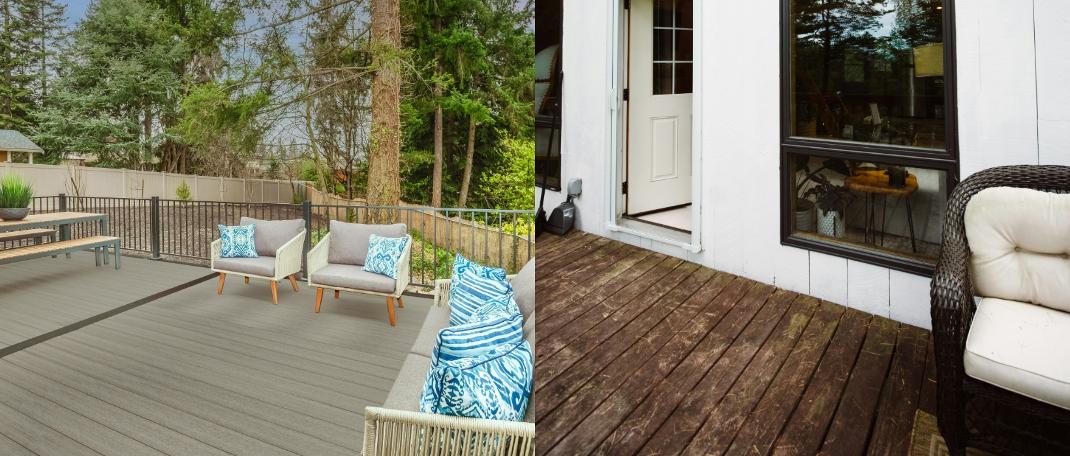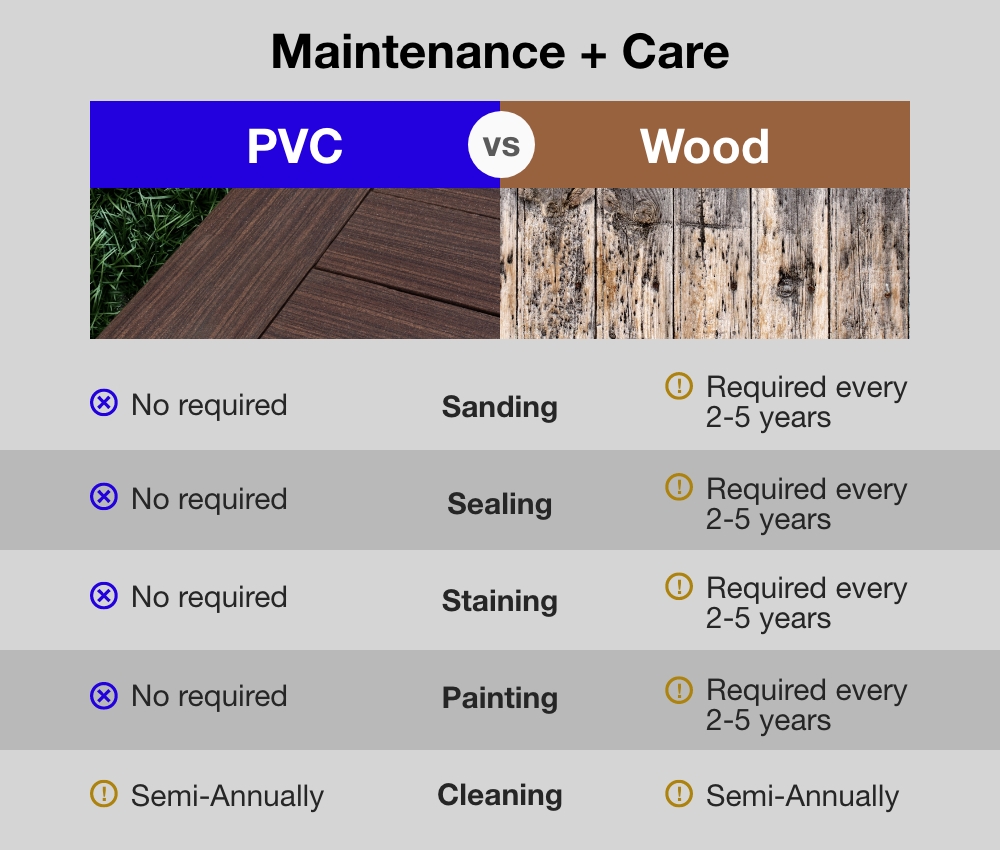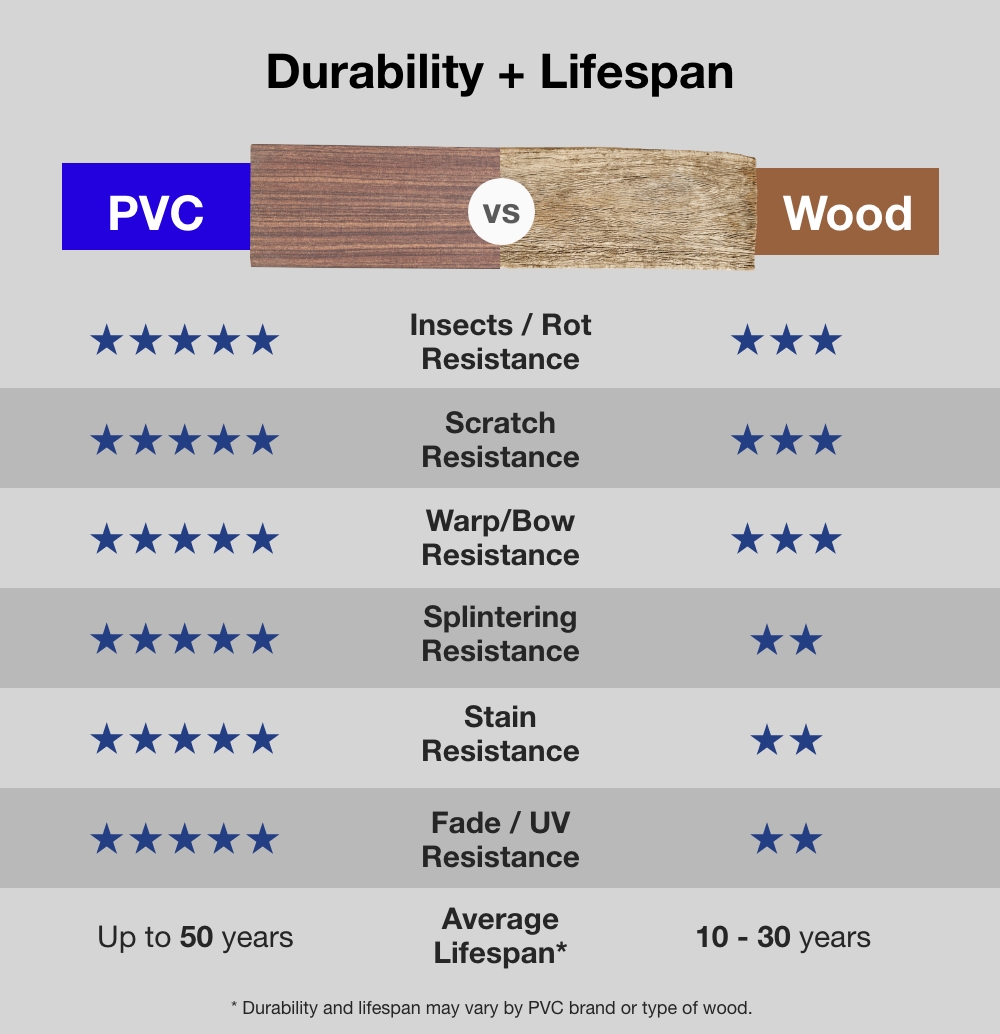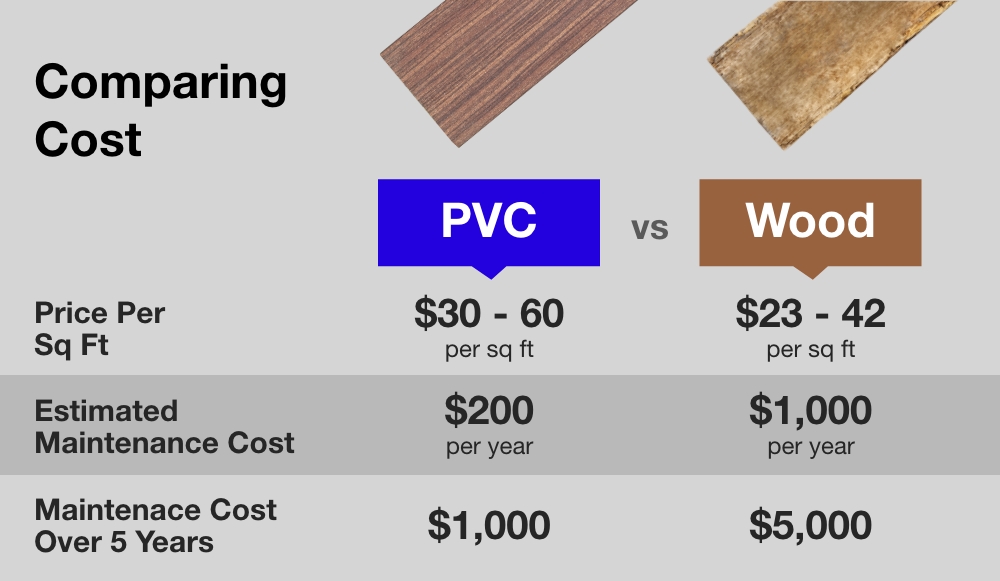PVC vs Wood Decking:
The Pros and Cons

Alternative options to wood decking have gained in popularity over the last several years, pushing deck-builders to seriously consider the pros and cons of PVC decking. In this matchup of PVC vs. wood decking, several factors play a role in the final decision, including:
• Maintenance and durability
• Appearance
• Costs
• Sustainability and environmental impact
Depending on a customer’s financial costs and design considerations, both options might be a winner. But to understand the long-term value of wood vs. PVC deck materials, let’s weigh the pros and cons of each.
Why consider PVC decking?
For starters, once installed, PVC decks need very little maintenance. This becomes a large advantage when considering PVC versus wood decks.

PVC decks only require some semi-annual cleaning- a simple scrub with soap and water is usually enough. If living in harsher environments (prone to heavy snow or rain) cleaning may need to be done more often.
How long does a PVC deck last?
Apart from extreme circumstances like fire damage PVC decking should last the life of your home. Thanks to the material’s durability, high-quality PVC decks should last for decades and come with excellent warranties that make them a long-term investment.

Cost
Upfront costs for PVC materials tend to be higher than most wood materials, which can lead to hesitation for most homeowners. But factoring in the cost of maintenance and care over the life of the deck PVC wins out over wood.

Is a PVC deck worth it?
As it stands installing PVC decking is more expensive in the upfront cost versus pressure-treated wood, however, the zero cost of maintenance PVC pays off in the long run. Water and insect damage are not factors when owning a PVC deck.
Start a Project
Order samples to start planning out your next project.